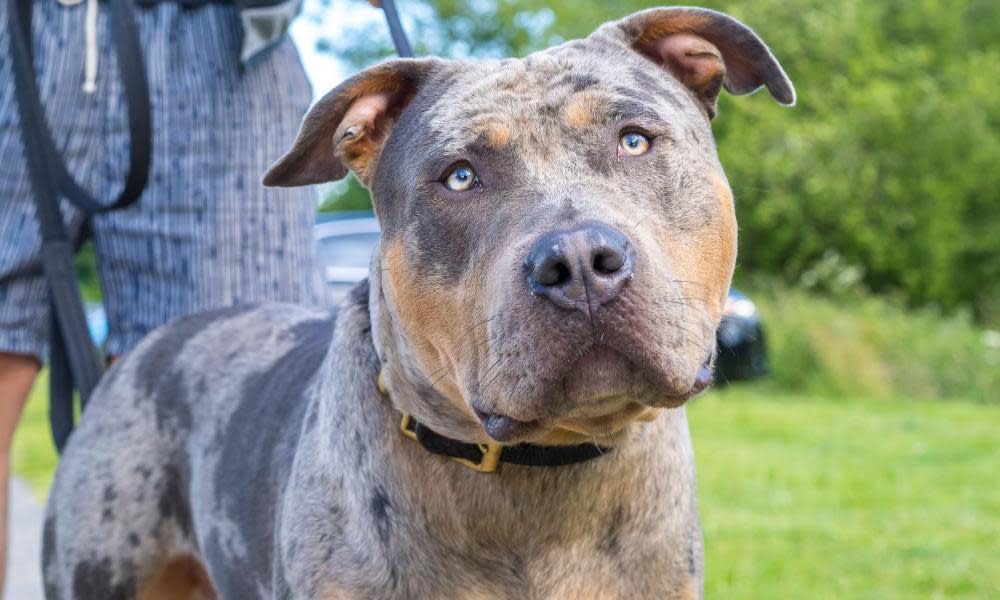UK campaigners seek to overturn ban on American XL bully dogs

A campaign group has launched a legal attempt to overturn the government’s ban on American XL bully dogs after raising more than £160,000 to fund a potential judicial review.
The group of XL bully owners and dog experts, Don’t Ban Me – Licence Me, said it had instructed a lawyer and submitted a pre-action protocol to the government, and hopes to apply for an injunction to delay the ban before the end of the year.
From 31 December in England and Wales it will be against the law to sell, abandon, breed from or give away an XL bully, or have one in public without a lead or muzzle, and owners have until 1 February to apply for an exemption.
The ban was brought in by the government after a spate of serious attacks involving the breed, which led to a number of injuries and deaths.
But a number of animal organisations including the RSPCA, Blue Cross and the Kennel Club have opposed the ban, arguing there is not enough evidence it will reduce the number of dog attacks and could lead to animals being put down unnecessarily.
Related: Why are American XL bullies being banned and how will it work?
“Our next steps are to apply for the injunction to delay the ban and then also apply for the judicial review,” said Sophie Coulthard, 39, an XL bully owner who heads up Don’t Ban Me – Licence Me.
“Given the impact that it’s already having, including the pressure on rescue centres and people facing losing their homes at the end of this year if they keep their dog, we do feel that there is a good grounds for an injunction.
“Even things like the amount of people that have struggled to get muzzles that fit their dog. We’re in a cost of living crisis and people are really struggling with the costs involved with this.”
The group is instead advocating for better education for dog owners, as well as licensing for owners of large dogs such as XL bullys, which it says would help reduce some of the aggravating factors that often lead to dog attacks.
“We would like the government to consider licensing, because that is something that’s been presented to them, even through their own commissioned research, and has been ignored,” said Coulthard. “There’s lots of really good models that are successful, where countries have just done away with breed specific legislation because what they found is they just kept banning more dog breeds and it clearly wasn’t working.
“It can involve mandatory training, making sure breeders are licensed properly, and stops people impulse buying dogs which you obviously see a lot.”
She said the looming prospect of the ban had affected the mental health of owners, and there was a lot of uncertainty about which dogs would be included.
“It’s heartbreaking to see to be honest, because I don’t think the government have really considered welfare of the animals, and also how this is impacting people right before Christmas,” Coulthard said.
A Department for Environment, Food and Rural Affairs spokesperson said: “We have taken quick and decisive action to protect the public from tragic dog attacks by adding the XL bully type to the list of dogs prohibited under the Dangerous Dogs Act.
“Alongside this, we are focused on ensuring that the full range of existing powers to tackle dog control issues are effectively applied across all breeds of dog. This includes considering the role of education and training to reduce the risk of dog attacks, as well as how we can improve data collection and enforcement practices.”

 Yahoo News
Yahoo News 
